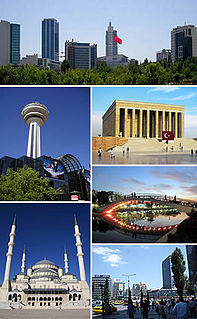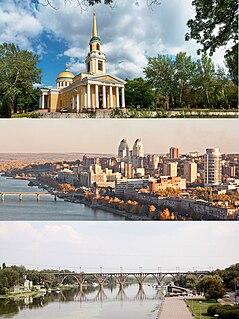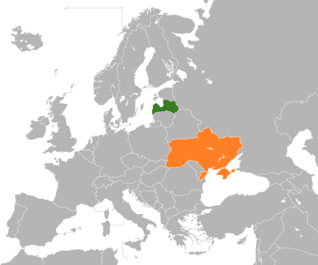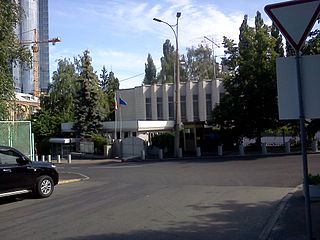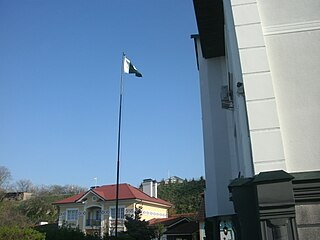 | |
| Location | Kiev |
| Address | Arsenalna St., 18, Kiev 01901, Ukraine |
| Coordinates | 50°25′52″N30°32′15″E / 50.4312°N 30.5374°E Coordinates: 50°25′52″N30°32′15″E / 50.4312°N 30.5374°E |
| Ambassador | Yagmur Ahmet Guldere |
The Embassy of the Republic of Turkey in Kiev is the diplomatic mission of Turkey, located in Ukraine. [1]

Turkey, officially the Republic of Turkey, is a transcontinental country located mainly in Western Asia, with a smaller portion on the Balkan Peninsula in Southeast Europe. East Thrace, located in Europe, is separated from Anatolia by the Sea of Marmara, the Bosphorous strait and the Dardanelles. Turkey is bordered by Greece and Bulgaria to its northwest; Georgia to its northeast; Armenia, the Azerbaijani exclave of Nakhchivan and Iran to the east; and Iraq and Syria to the south. Istanbul is the largest city, but more central Ankara is the capital. Approximately 70 to 80 per cent of the country's citizens identify as Turkish. Kurds are the largest minority; the size of the Kurdish population is a subject of dispute with estimates placing the figure at anywhere from 12 to 25 per cent of the population.

Ukraine, sometimes called the Ukraine, is a country in Eastern Europe. Excluding Crimea, Ukraine has a population of about 42.5 million, making it the 32nd most populous country in the world. Its capital and largest city is Kiev. Ukrainian is the official language and its alphabet is Cyrillic. The dominant religions in the country are Eastern Orthodoxy and Greek Catholicism. Ukraine is currently in a territorial dispute with Russia over the Crimean Peninsula, which Russia annexed in 2014. Including Crimea, Ukraine has an area of 603,628 km2 (233,062 sq mi), making it the largest country entirely within Europe and the 46th largest country in the world.


